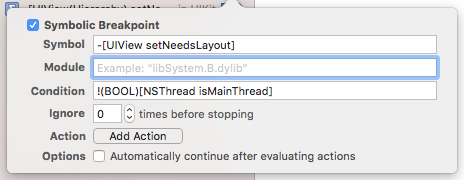Swift Composable Architecture folks dug into this and found a solution
You should read about it here
And you can get the code here
which you can then use as
runtimeWarning("This is neat")
full code because SO likes code rather than references:
#if DEBUG
import os
import XCTestDynamicOverlay
// NB: Xcode runtime warnings offer a much better experience than traditional assertions and
// breakpoints, but Apple provides no means of creating custom runtime warnings ourselves.
// To work around this, we hook into SwiftUI's runtime issue delivery mechanism, instead.
//
// Feedback filed: https://gist.github.com/stephencelis/a8d06383ed6ccde3e5ef5d1b3ad52bbc
private let rw = (
dso: { () -> UnsafeMutableRawPointer in
let count = _dyld_image_count()
for i in 0..<count {
if let name = _dyld_get_image_name(i) {
let swiftString = String(cString: name)
if swiftString.hasSuffix("/SwiftUI") {
if let header = _dyld_get_image_header(i) {
return UnsafeMutableRawPointer(mutating: UnsafeRawPointer(header))
}
}
}
}
return UnsafeMutableRawPointer(mutating: #dsohandle)
}(),
log: OSLog(subsystem: "com.apple.runtime-issues", category: "ComposableArchitecture")
)
#endif
@_transparent
@inline(__always)
func runtimeWarning(
_ message: @autoclosure () -> StaticString,
_ args: @autoclosure () -> [CVarArg] = []
) {
#if DEBUG
let message = message()
unsafeBitCast(
os_log as (OSLogType, UnsafeRawPointer, OSLog, StaticString, CVarArg...) -> Void,
to: ((OSLogType, UnsafeRawPointer, OSLog, StaticString, [CVarArg]) -> Void).self
)(.fault, rw.dso, rw.log, message, args())
XCTFail(String(format: "\(message)", arguments: args()))
#endif
}
code is MIT licenced




